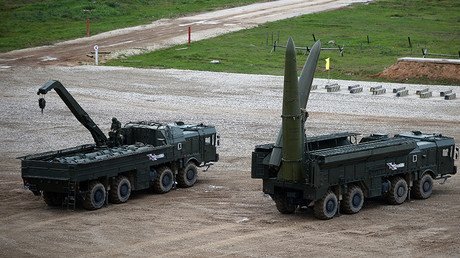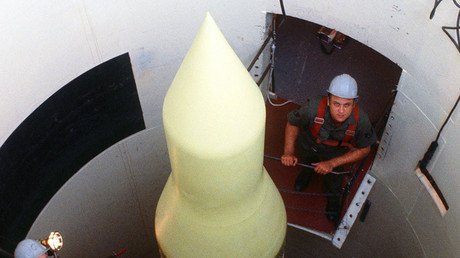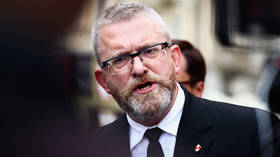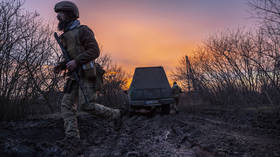NATO bets on ‘strong defense, deterrence & dialogue’ with Russia – Stoltenberg
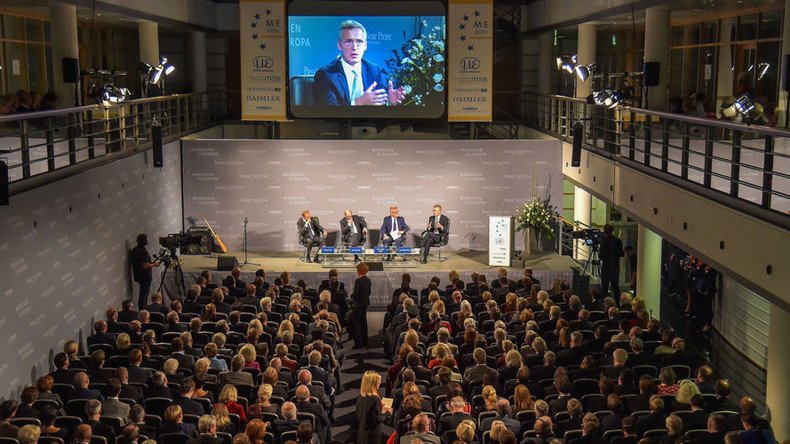
NATO General Secretary Jens Stoltenberg sees no contradiction between the biggest increase in the alliance’s military presence near Russia’s borders since the end of the Cold War and its alleged intention to continue political dialogue with Moscow.
“We have to combine the idea of strength, deterrence, defense and dialogue. For me, there is no contradiction between strong defense and a political dialogue,” Stoltenberg said during a roundtable in Passau, Bavaria, where he was joined by European Council President Donald Tusk and European Parliament President Martin Schulz. “It is very important at the same time to avoid a new Cold War. We do not want a new arms race.”
Stoltenberg said he was not unduly alarmed by Russia’s recent re-deployment of potentially nuclear-tipped Iskander missiles to its westernmost exclave, Kaliningrad.
“We’ve detected that they’ve moved the missiles, and this is part of a general trend we are seeing in recent times,” said the former Norwegian Prime Minister. “NATO has responded. You have to understand that we have implemented the biggest reinforcement of collective defense since the end of the Cold War.”
In July NATO approved the introduction of four additional international battalions to states bordering Russia, each expected to number up to 1,000 troops. It also continues to roll out its missile defense systems, and in June conducted the biggest drills since the fall of the Iron Curtain, in which over 31,000 troops participated.
Stoltenberg warned that Moldova, a former USSR republic, with an unrecognized breakaway self-proclaimed republic of Transnistria, could become the next post-Soviet flashpoint.
“Our greatest concern is connected to the fact that Russia is willing to use force against its neighbors: Ukraine, Crimea but also Georgia. They also have troops in Moldova against the will of the Moldovan government. We see more assertive and stronger Russia that is willing to use force,” said Stoltenberg.
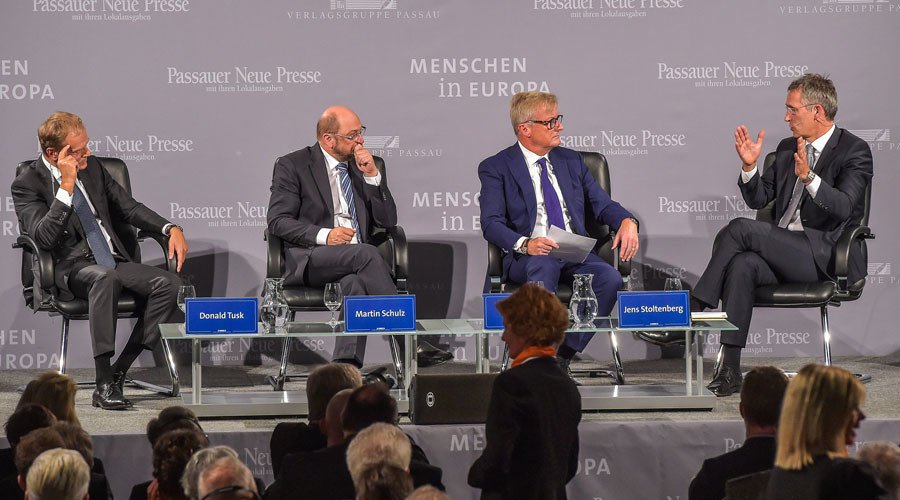
But despite insisting that Europe has been facing a growing security threat, not just from Russia, but as a result of the fallout from the instability in the Middle East, Stoltenberg sounded cool on the prospect of a permanent EU army.
“What we have to make sure is that strengthening European defense does not duplicate NATO, does not create an alternative to NATO but is working together with NATO,” he told the audience. “It is clearly stated in the Lisbon treaty that European defense and security policy should not be an alternative to NATO but should be compatible with NATO and consistent with NATO.”
Although they have shied from explicitly calling it an EU army, several top European Union diplomats have recently upped their public lobbying for the creation of a full-time armed force that would work independently from NATO, and outside existing treaties. Some have seen this as a move towards a closer union on the continent, while others have argued that the force would work on specific remits, such as dealing with migration flows, or humanitarian missions abroad.
But Stoltenberg said that there was little appetite for a new bureaucratic structure, particularly in view of the fact that EU states have frequently failed to hit even the existing NATO recommendations on military spending.
“I attended a defense ministers’ meeting of the EU a couple of weeks ago and here was no one there arguing in favor of the European army,” said Stoltenberg. “If Europe is able to develop new capabilities and spend more for defense, integrate and coordinate its defense industries that will be something I would really welcome. Actually, NATO has called for that for a long, long time.”
The discussion – titled ‘Can the Great Idea of Europe Persist?’ organized as part of a local publisher’s festival – lasted close to two hours, as speakers moved from issue to issue.
#NATO to deploy 4,000-strong ‘deterrent’ near Russia’s borders by May https://t.co/NGEdu0VKDwpic.twitter.com/MV9EltmXyg
— RT (@RT_com) September 19, 2016
Russia believes that NATO’s new troop deployments as well as an increased number of military trainings near Russian territory, the creation of anti-ballistic missile sites in Europe and other moves are a direct threat to Russia’s national security. Relations between Moscow and NATO soured sharply after Russia's reunion with Crimea following the coup in Ukraine in 2014.
However, despite differences in approach to the reasons and consequences of the decisions made at the bloc’s summit in Warsaw, Moscow says it is still ready for a constructive dialogue with NATO.
